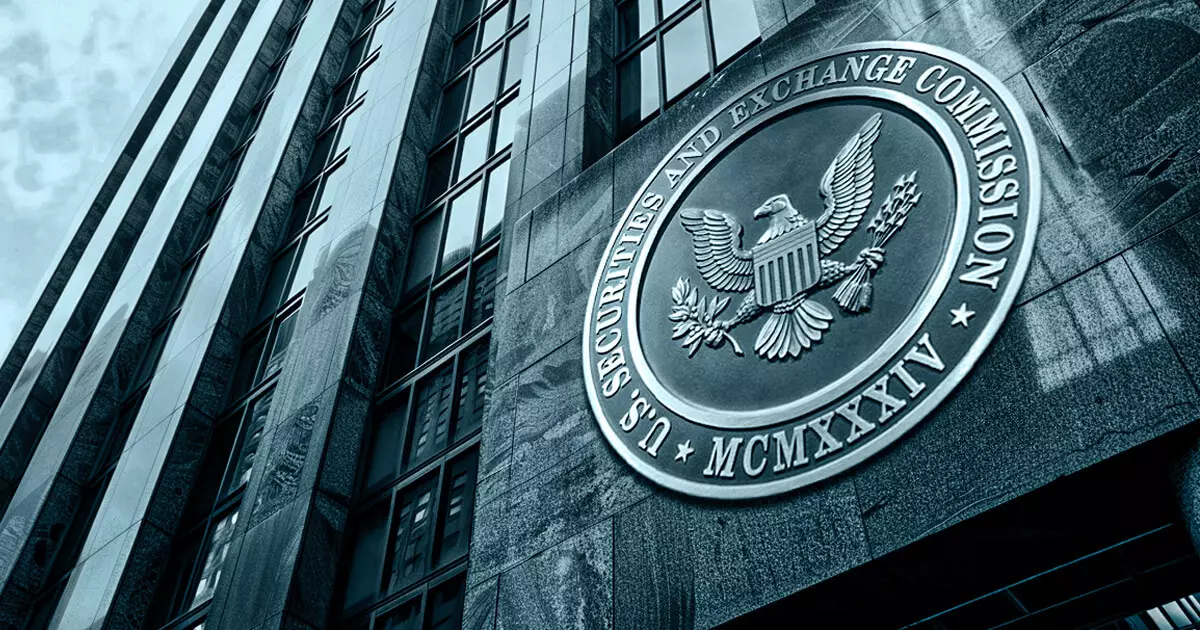The upcoming House Appropriation budget has created a stir by potentially preventing the US SEC from implementing its highly debated Staff Accounting Bulletin 121 (SAB 121). FOX Business reporter Eleanor Terrett brought this news to light on June 4, suggesting that the bill includes a provision that would prohibit the SEC from using allocated funds to enforce the rule. This move could have significant implications for the financial industry, especially for firms that hold customers’ digital assets.
The fate of the House Appropriation budget remains uncertain as it faces potential challenges in passing through the Senate. While the Republican-majority House is likely to approve the bill in a hearing scheduled for June 5, the Democratic and Independent majority in the Senate may pose obstacles. Despite Democratic support for a similar resolution in the past, the Senate could decide to retain the provision targeting SAB 121 in the budget.
The budget bill aims to allocate $2 billion to the SEC in 2025, falling short of the $2.59 billion requested by SEC chair Gary Gensler. This indicates a potential limitation in the funding available for the SEC to carry out its regulatory functions effectively. Commissioner Mark Uyeda has expressed support for withdrawing SAB 121, criticizing the decision to introduce it through a regulatory edict rather than the established rulemaking process under the Administrative Procedure Act (APA).
Uyeda’s objections resonate with earlier criticism from SEC commissioner Hester Peirce, who questioned the appropriateness of using a bulletin to enact significant changes. Both Uyeda and Peirce seem to focus more on the procedural flaws in implementing SAB 121 rather than the content of the rule itself. This raises concerns about the transparency and due process followed by the SEC in introducing regulatory changes that could have far-reaching consequences.
SAB 121 mandates that financial institutions and other entities managing digital assets must include these assets on their balance sheets, potentially leading to increased capital and liquidity requirements. This could impose a significant financial burden on firms and restrict their ability to operate in the digital asset space. The House and Senate had previously passed H.J. Res. 109 to overturn the bulletin, but President Joe Biden’s subsequent veto has complicated the situation.
The political dynamics surrounding the issue add another layer of complexity, with Biden’s veto drawing criticism from various quarters. House lawmakers, the American Bankers Association, and other interest groups have urged Biden to reconsider his decision and sign the resolution into law. This highlights the divergent viewpoints within the political establishment and the financial industry regarding the regulatory framework for digital assets.
The controversy surrounding the US SEC’s Staff Accounting Bulletin 121 underscores the challenges of balancing regulatory oversight with industry innovation. The outcome of the House Appropriation budget and the fate of SAB 121 will have far-reaching implications for financial institutions, investors, and the broader digital asset ecosystem. It is essential for policymakers and regulators to engage in constructive dialogue to address concerns raised by stakeholders and ensure a fair and transparent regulatory environment for all parties involved.


Leave a Reply